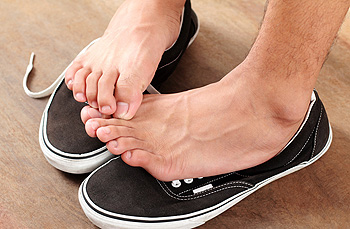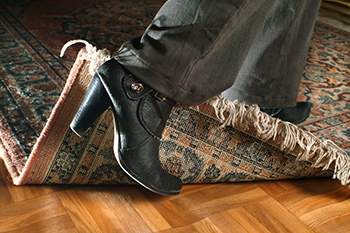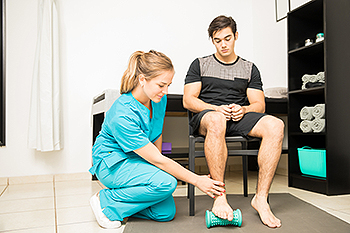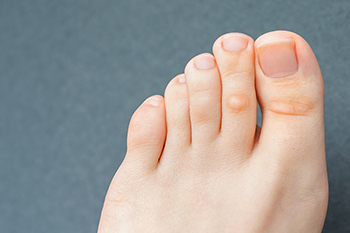

A number of conditions can cause your feet to itch. The first and probably most common cause is athlete’s foot, a fungal infection that is annoying but treatable. Symptoms of athlete’s foot include itching, redness, flaking skin between the toes or on the bottom of the feet. Another cause of itching feet is eczema, a type of skin condition that may resemble athlete’s foot but is not caused by a fungus. Instead it is thought to be caused by dry skin that is more vulnerable to irritation and allergens. Sometimes itchy and scaly skin can be caused by contact dermatitis, generally from an allergen or other irritant. Itchy feet may also be the result of psoriasis, an autoimmune disease that causes skin cells to regenerate too quickly. Hives, also known as urticaria, may cause itching, along with welts, burning or stinging. Food, medication, or a viral infection may set it off. Neuropathy, numbness caused by damaged nerves, also may result in itchiness as the body produces cytokines that can irritate the skin. If itchy feet become a serious or an ongoing problem, it is suggested that you consult a podiatrist for an examination and diagnosis.
Everyday foot care is very important to prevent infection and other foot ailments. If you need your feet checked, contact Dr. Stephan J. LaPointe from Georgia Foot & Ankle Specialists . Our doctor can provide the care you need to keep you pain-free and on your feet.
Everyday Foot Care
Often, people take care of their bodies, face and hair more so than they do for their feet. But the feet are a very important aspect of our bodies, and one that we should pay more attention to. Without our feet, we would not be able to perform most daily tasks.
It is best to check your feet regularly to make sure there are no new bruises or cuts that you may not have noticed before. For dry feet, moisturizer can easily be a remedy and can be applied as often as necessary to the affected areas. Wearing shoes that fit well can also help you maintain good foot health, as well as making it easier to walk and do daily activities without the stress or pain of ill-fitting shoes, high heels, or even flip flops. Wearing clean socks with closed shoes is important to ensure that sweat and bacteria do not accumulate within the shoe. Clean socks help to prevent Athlete’s foot, fungi problems, bad odors, and can absorb sweat.
If you have any questions please feel free to contact our office located in Rome, GA . We offer the newest diagnostic and treatment technologies for all your foot and ankle needs.

Experts have found that people with osteoarthritis, which affects three or four joints, are 75 percent more likely to fall. It is thought that lack of mobility, as the result of pain, causes muscles to weaken, affects the gait, and throws off your balance. Also, certain medications may affect your stability. Ways to help prevent falls at home include removing loose wires, small rugs, and other clutter from floors and walkways. Place non-skid mats and grab bars in showers and tubs. Improve lighting in hallways, and install handrails on staircases inside and out. Taking vitamin D may help to increase muscle strength and reduce fall risks if you are deficient. Finally, wear shoes that fit properly and have non-skid soles. Avoid high heels, slippers, and leather-soled shoes that can be slippery or affect your balance. For further guidance, please consult a podiatrist about specific measures that can be taken to keep you on your feet safely.
Preventing falls among the elderly is very important. If you are older and have fallen or fear that you are prone to falling, consult with Dr. Stephan J. LaPointe from Georgia Foot & Ankle Specialists . Our doctor will assess your condition and provide you with quality advice and care.
Every 11 seconds, an elderly American is being treated in an emergency room for a fall related injury. Falls are the leading cause of head and hip injuries for those 65 and older. Due to decreases in strength, balance, senses, and lack of awareness, elderly persons are very susceptible to falling. Thankfully, there are a number of things older persons can do to prevent falls.
How to Prevent Falls
Some effective methods that older persons can do to prevent falls include:
Falling can be a traumatic and embarrassing experience for elderly persons; this can make them less willing to leave the house, and less willing to talk to someone about their fears of falling. Doing such things, however, will increase the likelihood of tripping or losing one’s balance. Knowing the causes of falling and how to prevent them is the best way to mitigate the risk of serious injury.
If you have any questions, please feel free to contact our office located in Rome, GA . We offer the newest diagnostic and treatment technologies for all your foot care needs.

A symptom of the foot condition known as plantar fasciitis is severe heel pain and it can make daily activities difficult to complete. The plantar fascia is found on the sole of the foot and it connects the heel to the toes. Many people have found the benefits of practicing specific foot stretches to help ease heel pain. A towel stretch is an effective exercise for the bottom of the foot. This is done by sitting on the floor, wrapping a towel around the sole of the foot, and gently flexing the foot towards the face. Some patients find it helpful to practice heel stretches. This is accomplished by standing on a step and lowering the heels one at a time until a mild stretch is felt. There are many exercises that can specifically help plantar fasciitis. If you would like more information, it is suggested that you confer with a podiatrist who can effectively guide you toward proper treatment techniques.
Plantar fasciitis is a common foot condition that is often caused by a strain injury. If you are experiencing heel pain or symptoms of plantar fasciitis, contact Dr. Stephan J. LaPointe from Georgia Foot & Ankle Specialists . Our doctor can provide the care you need to keep you pain-free and on your feet.
What Is Plantar Fasciitis?
Plantar fasciitis is one of the most common causes of heel pain. The plantar fascia is a ligament that connects your heel to the front of your foot. When this ligament becomes inflamed, plantar fasciitis is the result. If you have plantar fasciitis you will have a stabbing pain that usually occurs with your first steps in the morning. As the day progresses and you walk around more, this pain will start to disappear, but it will return after long periods of standing or sitting.
What Causes Plantar Fasciitis?
There are some risk factors that may make you more likely to develop plantar fasciitis compared to others. The condition most commonly affects adults between the ages of 40 and 60. It also tends to affect people who are obese because the extra pounds result in extra stress being placed on the plantar fascia.
Prevention
There are a variety of treatment options available for plantar fasciitis along with the pain that accompanies it. Additionally, physical therapy is a very important component in the treatment process. It is important that you meet with your podiatrist to determine which treatment option is best for you.
If you have any questions, please feel free to contact our office located in Rome, GA . We offer the newest diagnostic and treatment technologies for all your foot care needs.

There are many people who suffer from the condition that is known as rheumatoid arthritis. The feet can become affected by this ailment which may lead to other foot conditions arising. Permanent relief may be found when foot surgery is performed. Rheumatoid arthritis may lead to the development of bunions. This produces a large, bony protrusion on the side of the big toe and may be the result of the toes shifting due to the arthritic disease. Bunion surgery involves cutting the affected bones in the foot and realigning them in a normal position. Additionally, arthritis may damage specific joints in the foot and a fusion may be needed that can help to reduce pain. There are many benefits to having foot surgery performed such as resuming normal functions of the feet, completing daily activities without pain, and wearing appropriate footwear. If you have chronic pain in your feet or you are afflicted with arthritis, please confer with a podiatrist who can determine if foot surgery is right for you.
Foot surgery is sometimes necessary to treat a foot ailment. To learn more, contact Dr. Stephan J. LaPointe of Georgia Foot & Ankle Specialists . Our doctor will assist you with all of your foot and ankle needs.
When Is Surgery Necessary?
Foot and ankle surgery is generally reserved for cases in which less invasive, conservative procedures have failed to alleviate the problem. Some of the cases in which surgery may be necessary include:
What Types of Surgery Are There?
The type of surgery you receive will depend on the nature of the problem you have. Some of the possible surgeries include:
Benefits of Surgery
Although surgery is usually a last resort, it can provide more complete pain relief compared to non-surgical methods and may allow you to finally resume full activity.
Surgical techniques have also become increasingly sophisticated. Techniques like endoscopic surgery allow for smaller incisions and faster recovery times.
If you have any questions please feel free to contact our office located in Rome, GA . We offer the newest diagnostic and treatment technologies for all your foot and ankle needs.

A corn is a small, hardened area of skin that often develops on the outside of the pinky toe or on top of the toes. A soft corn generally forms between the toes, but any type of corn can cause discomfort. Most corns develop as a result of excess friction, and this may happen due to wearing shoes or socks that are too tight. The corn will gradually diminish when the friction or rubbing is ceased. Wearing a cushioned pad on top of the corn may help to relieve some pain that often accompanies a corn. There are some patients who find it helpful to soak the affected foot in warm water as this can soften the skin. It is important to leave the corn alone and refrain from cutting it with toenail trimmers or scissors. If you have a corn or experience recurring corns, it is suggested that you speak with a podiatrist who can help you with proper treatment techniques and offer effective preventative methods.
Corns can make walking very painful and should be treated immediately. If you have questions regarding your feet and ankles, contact Dr. Stephan J. LaPointe of Georgia Foot & Ankle Specialists . Our doctor will treat your foot and ankle needs.
Corns: What Are They? And How Do You Get Rid of Them?
Corns are thickened areas on the skin that can become painful. They are caused by excessive pressure and friction on the skin. Corns press into the deeper layers of the skin and are usually round in shape.
Ways to Prevent Corns
There are many ways to get rid of painful corns such as:
Treating Corns
Although most corns slowly disappear when the friction or pressure stops, this isn’t always the case. Consult with your podiatrist to determine the best treatment option for your case of corns.
If you have any questions please feel free to contact our office located in Rome, GA . We offer the newest diagnostic and treatment technologies for all your foot and ankle needs.